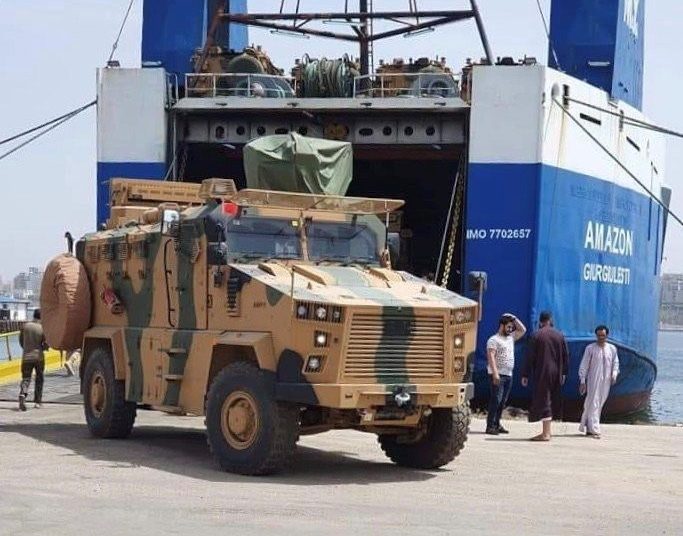Levent Kenez/Stockholm
A presidential motion proposing a 24-month extension of the Turkish military’s mission in Libya was approved by parliament on Thursday. During debate on the floor, an opposition lawmaker and former ambassador implicitly said Turkey had violated a UN embargo by supplying weapons to Libya.
Emphasizing the necessity of the Turkish navy’s presence in the region, Turkish President Recep Tayyip Erdogan stated that the government aimed to ensure national security against potential risks such as mass migration and terrorism by means of the motion.
According to the motion, the decision on the number of troops and the regions in which they will operate in Libya will be made solely by the president.
In addition to the ruling party and its allies in parliament, the opposition nationalist İYİ (Good) Party and the conservative Felicity Party (Saadet Partisi) also voted in favor of the motion.
Main opposition Republican People’s Party (CHP) member and former ambassador Namık Tan stated that due to Turkey’s misguided Libya policies, Israel, Greece, Cyprus and Egypt have found common ground against Turkey in the eastern Mediterranean.
He said Turkey’s position in Libya was hindering the development of relations with Egypt.
Turkey and Egypt also support two rival groups in Libya, both of which claim to represent the only legitimate government.
Transcription of Namık Tan’s speech:
It previously came to light that Turkey had violated the UN arms embargo on Libya by delivering weapons to the country.
A report submitted to the UN Security Council on May 24, 2022 detailed UN investigators’ findings, indicating that the Turkish government persisted in violating UN sanctions by sending materiel and providing training to various factions in Libya.
The UN assessment concluded that a significant portion of the military training offered by Turkey to Government of National Unity affiliated forces fell within the sanctions regime, thereby contravening UN Resolution 1970 (2011). The report clarified that the only potential exemption applied to certain types of training, such as ordnance disposal, which might be categorized as humanitarian training. However, the UN Security Council explicitly prohibited combat, special forces and sniper training.
According to a statement from the Turkish Ministry of Defense on November 30, 2021, the Turkish army completed the training of 6,799 Libyan soldiers, with 974 still undergoing training. Despite the UN investigators’ request for details on the military training of Libyan troops, Turkey declined to provide specifics in February 2022. Notably, Turkey responded to only seven out of the 15 letters sent by the UN panel of experts monitoring the Libya sanctions regime.
The UN also pointed out that an air bridge set up by the Turkish Air Force between Turkey and Libya to help the Government of National Unity is also considered a violation. At least 33 flights by a Turkish Air Force-operated Airbus A400M delivered an estimated 1,221 tons of cargo from May 2021 to March 2022. (LK:new)
The report additionally flagged private companies based in Turkey for arms violations, including Kapeks Kimya Sanayi A.Ş., Arkas Denizcilik ve Nakliyat A.Ş, MNG Hava Yolları ve Taşımacılık A.Ş. (MNG Airlines), Asi Makine San. Tic. Ltd. Şti (Sur Arms) and the Akar Group. Most of these companies failed to respond to UN inquiries.
UN Report:
The report detailed military equipment sent to Libya by Turkey, including tanks, drones, artillery, missiles, rifles, armored carriers and electronic warfare systems.
The Turkish government, led by President Erdogan, has displayed a sustained interest in Libya, a country marked by civil strife since the 2011 Arab revolutions. Along with Qatar’s financial support, Turkey has armed, trained and supported factions aligned with the Erdogan government.
Erdogan and his family stand to benefit financially from the sale of military equipment to the Libyan factions they support. The Turkish defense industry is by and large controlled by President Erdogan, his family members and his business associates. It’s no coincidence that the companies red-flagged by the UN are run by Erdogan’s relatives and business associates.












